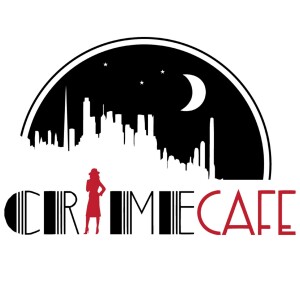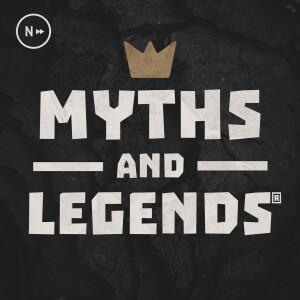

My guest for this episode of the Crime Cafe podcast is crime writer Deven Greene.
Check out our discussion about her medical and scientific thrillers.
You can download a copy of the interview transcript here.
Debbi (00:53): Hi everyone. My guest today writes fiction in the suspense and thriller genres. Most of her works involve science or medicine. She has a PhD in biochemistry and an MD, and she practiced pathology for more than 20 years. Her books include the Erica Rosen Trilogy, Ties That Kill, and her latest novel, The Organ Broker. She’s also published several short stories. It’s my pleasure to introduce my guest, Deven Greene. Hi, Deven. How are you doing today?
Deven (01:29): I’m doing great. How about yourself?
Debbi (01:31): Great, thank you. And I’m glad you’re here today, so very glad that you’re on the show. You live in Northern California? Yes?
Deven (01:39): That’s correct. Yeah.
Debbi (01:40): What part? Because I used to live in Petaluma.
Deven (01:43): Oh, okay. Well, I live, you may have heard of then of Orinda, which is a tiny town, but it’s near Walnut Creek in Berkeley.
Debbi (01:52): Oh, yeah. I remember. It’s the Napa Valley, right?
Deven (01:55): Yeah. Well, yeah.
Debbi (01:57): I’ll be darned. Beautiful country up there.
Deven (02:01): Yeah, no, I like it here.
Debbi (02:03): Yeah. So with a background like yours, I can certainly see how you got inspired to write medical thrillers or science thrillers. When you started writing fiction, did you find you had to kind of adjust your writing to be a bit less formal and more engaging, so to speak?
Deven (02:22): Well, it’s quite different than writing pathology reports, I’ll say that. But I’d say that I’ve read enough fiction, especially in my genre, to be able to adapt pretty easily. And interestingly, when I first started out, I had a resident working under me, and she wrote a pathology report, and she did a description of everything, but she didn’t say what it was, and it was like she was waiting, trying to build up suspense. I said, no, this is a pathology report. You have to say what it is.
Debbi (03:04): Yeah, yeah. Just say it.
Deven (03:06): Yeah. But it’s different in what I’m doing now,
Debbi (03:10): For sure. Yeah. I’m sure you do work in technical terms though. And how do you, what’s your method for taking complex scientific subjects and making them understandable to the average reader?
Deven (03:26): That’s a good question. So I really like to put what I call sciencey things in my writing. That’s one thing I really enjoy doing, and hopefully people will learn things. So I’ll write something and then I’ll go through it several times to simplify it, and then I give it to other people to read who are not in the medical or scientific field and get feedback. And a great one is my little brother who didn’t know the difference between a gallbladder and a kidney, I found out. So he’s a good one. If he can understand it, most people can. So I wind up simplifying. I try to keep it still accurate. Some people may find it too much. I don’t know. They can skip over those parts, but that’s not the main substance of my books.
So I really like to put what I call sciencey things in my writing. That’s one thing I really enjoy doing, and hopefully people will learn things. So I’ll write something and then I’ll go through it several times to simplify it, and then I give it to other people to read who are not in the medical or scientific field and get feedback.Debbi (04:28): You’d rather sprinkle it in than overwhelm with detail?
Deven (04:31): Yes, that’s my attempt. That’s my attempt.
Debbi (04:35): I think that’s generally the way people approach it. I know that when it comes to legal terminology, I tend to, I used to be very, what’d you call it? Literal in the way I would present something, or very explanatory. It’s like, no, no, no, Debbi. Cut back, make it less explanatory, make it more, make it more like fiction. Duh.
Deven (04:59): Right. It’s not a report. It’s not a brief.
Debbi (05:03): So what is your latest book about?
Deven (05:08): My latest book, The Organ Broker, and I happen to have a copy here.
Debbi (05:12): Nice cover.
Deven (05:14): Trying to get it in focus is about.
Debbi (05:16): It’s a little out of focus there.
Deven (05:18): Well, I’m not being very successful here. There we go. Anyway, it’s about, as one person thought, it was about someone who sells piano type organs to churches. And it’s not that. I think most people would get that. So basically the book starts with a political rally, and there’s a very charismatic speaker, and they’re in front of a big building, and people are holding signs that say, stop, STOP. And they eventually bring somebody, the police bring somebody and lead him wearing an orange jumpsuit and shackles, bring him into the building. And at the end you realize that he’s going to be executed. And the name of the organization is Stop Transplant of Organs from Prisoners because they’re now executing people and taking their organs to transplant. So that’s basically what it’s about. And it’s about a couple with a very charismatic husband, but he’s a jerk and the wife who’s kind of the brains behind the operation, and she really wants to see it succeed. And there’s this dark character called Broker Al, who actually sells the organs. You learn at some point, and things don’t go as they should. So that’s basically the story.
Debbi (06:56): And what inspired you to write about this particular subject?
Deven (07:01): Good question. I get my thoughts out of thin air. I did read a book a while back, which was interesting, about a man who accompanied his brother who needed a kidney to China. And they used prisoners, as you may or may not know, and it has been brought up in other countries. But it was an interesting read, and I just remembered one part of the book. I couldn’t believe where they’re actually going to get this kidney. And he’s kind of saying, well, who is this guy? And he’s talking to the doctor and the doctor says, this man is very bad. He’s so bad. I would kill him myself.
I get my thoughts out of thin air. I did read a book a while back, which was interesting, about a man who accompanied his brother who needed a kidney to China. And they used prisoners, as you may or may not know, and it has been brought up in other countries.Debbi (07:49): Oh my goodness.
Deven (07:52): Yeah. But anyway, it is practiced kind of hush-hush in China and probably at countries.
Debbi (08:01): Fascinating. Very interesting.
Deven (08:04): It’s a “what if.” What if we did that here? It has been talked about, it has been talked about.
Debbi (08:10): That is very interesting. You also are offering to give away a copy of that book as well as the Erica Rosen Trilogy, is it?
Deven (08:23): Yeah. Yeah. I have, it’s called Erica Rosen MD Trilogy. And there’s three books in that one. It’s older, so it’s about a pediatrician who has three events, I’ll say, because the first one, which is called Unnatural, is about genetic engineering. And the second one, Unwitting, is about autism. And the third one, which is called Unforeseen, has to do with pharmaceutical industry. So they’re all different, but they follow a story arc with Erica and her best friend Daisy. She’s a San Francisco pediatrician, but she does wind up going different places in the books.
Debbi (09:11): Are your books generally set in the same area, location?
Deven (09:16): No, actually, I move around. My story Ties That Kill, which I wrote in between takes place in Idaho. And actually after I wrote that there were the four killings in Idaho. These four university students were murdered. It’s been on the news a lot. And then The Organ Broker takes place mostly in Texas, which, it’s kind of a big capital punishment state.
Debbi (09:54): Oh, yeah. Yeah. That’s right. That seems appropriate. Yeah.
Deven (10:00): Yeah.
Debbi (10:01): Let’s see. How much research do you do before and while you write your books?
Deven (10:07): I do quite a bit. A lot of the main subjects I write about, I know a fair amount about, but often I have to do more research in that. But there’s also a lot of ancillary things that come up that I kind of don’t know anything about. And I really enjoy learning about these things. They may not be the main subject of the book, but I like to keep things interesting and just introduce things that may be about a place, a thing, a technique, an item. I had to learn some cell phone technology, for instance, for one of my books, learned Bitcoin technology for another of my books. Just a number of random things.
A lot of the main subjects I write about, I know a fair amount about, but often I have to do more research in that. But there’s also a lot of ancillary things that come up that I kind of don’t know anything about. And I really enjoy learning about these things.Debbi (10:55): I hear that more and more about Bitcoin and cryptocurrency, people learning about this stuff. And I’m always amazed. It’s like I can barely wrap my mind around it.
Deven (11:06): Well, I’m not saying I would invest in it, but–
Debbi (11:10): Yeah, really.
Deven (11:11): But I know something about it.
Debbi (11:13): That’s very cool. There’s something I wanted to ask you, and now it’s just completely slipped my mind, but I will just continue on.
Deven (11:23): Okay.
Debbi (11:24): What kind of writing schedule do you keep?
Deven (11:28): Well, I’ve actually developed a writing schedule. When I first started to write, I was still working, and then it was just whenever. I couldn’t really easily fit it in, but I did most of my writing more late at night, on the weekends. And sometimes I would take vacation and just stay home and write. I wouldn’t go any place. But now I’m retired, and it took me a while. I would get kind of obsessed and want to just keep writing. And I’ve realized that that’s actually not a good thing. So now what I do is when I’m writing, when I’m doing the rough draft, what I call the rough draft, I write 1100 words a day. I get up, I have my coffee, and then I sit down to write and I write 1100 words, and then I stop. And it actually gives me time to think about changes I might want to make instead of just plowing through it really fast. So that works out well. And then of course, I wind up spending more time editing.
I’ve actually developed a writing schedule. When I first started to write, I was still working, and then it was just whenever. I couldn’t really easily fit it in, but I did most of my writing more late at night, on the weekends. And sometimes I would take vacation and just stay home and write.Debbi (12:42): Yes. Especially if you’re cranking out a thousand words a day. That’s pretty good. That’s darn good.
Deven (12:49): I really do crank it out. I mean, I don’t correct much. It’s full of misspellings and bad grammar or bad punctuation.
Debbi (13:02): But it’s all stuff you can clean up later.
Deven (13:04): Yes, yes. So.
Debbi (13:06): Getting it on the page is the hard part.
Deven (13:09): Yeah.
Debbi (13:10): Then you can clean it up. I know what I was going to ask you. I was going to ask you, as a pathologist, where did you work? What kind of work did you do?
Deven (13:18): Oh, okay. Well, I was not a forensic pathologist. I was not an examiner. And if there’s any listening, I’m sorry, but they’re weird.
Debbi (13:31): They’re always depicted that way on television too, so maybe that’s accurate.
Deven (13:38): Well, having been to a number of lectures given by medical examiners, without going into any details, they like to show gruesome pictures and they like to shock an audience, even of pathologists. Okay.
Debbi (13:54): Oh, wow.
Deven (13:57): But I practice, actually, there’s a big healthcare institution here called Kaiser Permanente. I dunno the term of it, but it covers a lot of it.
Debbi (14:08): Oh, yeah.
Deven (14:09): So I worked at one of their labs where I got specimens from all over Northern California Kaiser to do special testing on it. I really enjoyed it, and I had to think long and hard about retiring, because I really enjoyed my work. But then I thought, actually the first job I got, the very first job I got, I was called almost in a panic. I had just finished my residency and just finished my boards. And a pathologist had died looking in his microscope, and he just had a heart attack and died, and they did a replacement. And so as I got older, I started thinking, I don’t want to die at the microscope.
I had to think long and hard about retiring, because I really enjoyed my work. … I had just finished my residency and just finished my boards. And a pathologist had died looking in his microscope, and he just had a heart attack and died, and they did a replacement. And so as I got older, I started thinking, I don’t want to die at the microscope.Debbi (14:58): Yeah.
Deven (14:59): I want to have some fun. I mean, not that work wasn’t fun, but.
Debbi (15:03): Yeah, I get it.
Deven (15:04): I thought, you know. So I just kind of picked a date five years away and stuck with it. So here I am.
Debbi (15:12): Good thinking. So are you more of a plotter or a pantser? You sound like a pantser.
Deven (15:21): Well, I am a plotter. I always start with a plot, but I have found that if I write anything detailed, it gets changed. I always have a plot. I don’t start with characters. I start definitely with plot, and I know the basic arc, where it’s going to start and where it’s going to end, and maybe some stops along the way, but in between I, I’m a pantser or you could say, but I always know who are …
Debbi (15:52): Where you’re headed,
Deven (15:54): Where I’m headed. My books are not mysteries. People often say, you’re a mystery writer. I do write some short stories that are mysteries, but they’re, they’re more, you know what’s going on and you know what the stakes are, you may not know how it’s going to shake out. But anyway, that’s what I do. So I definitely have to make a lot of changes along the way. I can’t write that detailed an outline.
Debbi (16:26): Neither can I could never write out every single thing that was going to happen in the book, otherwise I would just write the book.
Deven (16:34): Well, yeah. Well, also you get ideas that pop into your mind. You think you were going to do one thing and then you think this would be better, or you even hear, I mean, actually one thing I’ve learned is I don’t write historical fiction, but in a way that would be easier because things change now. So sometimes I’ve written a book and things have changed while I’m writing it.
I don’t write historical fiction, but in a way that would be easier because things change now. So sometimes I’ve written a book and things have changed while I’m writing it.Debbi (17:07): Oh, yeah. Yes. It’s a very real problem.
Deven (17:11): Yeah. Like Covid!
Debbi (17:15): Yeah. That was a biggie. Yeah.
Deven (17:16): Yeah. So I had to stick that in. There’s things you have to mention, you started and there was no Covid, nobody had heard of it, but things happened.
Debbi (17:28): Yeah, for sure. In your guest post, you mentioned several writers that you particularly enjoy or were inspired by. Robin Cook, Michael Chrichton, Michael Palmer were three that I remember.
Deven (17:42): Yeah.
Debbi (17:43): Are there any other authors who you enjoy or who inspire you other than those suspects.
Deven (17:50): Actually, I should have put Tess Gerritsen on that list.
Debbi (17:55): Ah. Tess Gerritsen. Okay.
Deven (17:56): Yeah. I mean, these are MDs that write medical thriller type books, which I enjoy. And that’s not the only thing I enjoy. Okay. But that’s what I like to write.
Debbi (18:09): Exactly.
Deven (18:10): Another book I really enjoyed was The Martian. It’s not medical, but it’s what you call sciency. And I really enjoyed that. And I read a lot of nonfiction and I read a lot of other fiction and some I don’t like. I won’t mention the ones I don’t like.
Debbi (18:34): Do you read much science fiction at all?
Deven (18:39): I used to when I was younger, but I really don’t now.
Debbi (18:42): Same here. I tend to read less of it than I used to when I was younger.
Deven (18:47): I mean, I loved Star Wars when it came out.
Debbi (18:50): Oh, yeah.
Deven (18:51): I stopped. I don’t know how many they’ve had now. I’ve lost interest in that. Not that I couldn’t be interested, but there’s so much other stuff.
Debbi (19:02): Cool. Yeah. There are so many books. Yeah.
Deven (19:05): Oh, there’s too many books. There’s so many books I want to read, and I’m not a fast reader, and I like to write and maybe do something else,
Debbi (19:16): Really, you know. Have a life?
Deven (19:18): Yeah. I like to think I do. So all those things take time. But I always enjoy a good book. And I’ve also started reading more memoirs. A lot of memoirs I find very interesting. And they’re usually about people that are known to some extent, and they’re usually quite different than what I expected.
I always enjoy a good book. And I’ve also started reading more memoirs. A lot of memoirs I find very interesting.Debbi (19:47): That’s interesting.
Deven (19:48): Yeah.
Debbi (19:51): Who in particular has written a memoir that you didn’t expect what they wrote?
Deven (19:58): Well, one that comes to mind that I read fairly recently, Quincy Jones. So I was certainly familiar with Quincy Jones, and I suspected, I mean, he was 90 in his nineties when he died, so he was older and a very successful music. Well, he was a musician, but more of a music producer and that sort of thing. Very successful, often thanked at the Grammys. And I wondered how he got his start, because he started at a time when black people didn’t have a lot of opportunity, and I thought, I wonder if he was born into a rich black family. There were some, so I was curious to see what his story was. Well, I was completely wrong. He was dirt poor. He had a very terrible childhood, but he had an amazing personality and persevere. I mean, he was a force of nature. Very talented. But he just had a way of doing things. I was very impressed. I wish I had that.
Debbi (21:22): Yeah, it would be nice to have that kind of energy. Yeah. What advice would you give to anyone who’s interested in having a writing career?
Deven (21:33): Well, first of all, don’t expect too much.
Debbi (21:37): Yeah. Boy,.
Deven (21:37): Think everyone says that, but if that’s what you want, I really think, well, one thing I would suggest that I didn’t do was start writing short stories. I started with novels and then I started writing short stories, but I think it would make more sense to start with short stories. One thing I did do before I actually started writing, my first novel, which has yet to be published, is I took classes, I went to seminars, I took classes, paid some money. And I think you need that. You need to learn. Get books. At some point, you have to write. I mean, at some point you have to say, I think I’m ready.
I took classes, I went to seminars, I took classes, paid some money. And I think you need that. You need to learn. Get books. At some point, you have to write. I mean, at some point you have to say, I think I’m ready.Debbi (22:26): Exactly. And you pick up a good book or two, take a class. And from there, really, you just start writing.
Deven (22:34): Yeah. You have to have to go for it. And then you also have to be very open to criticism because you’ll need it. Yeah. It’s kind of upsetting. You spend a lot of time writing something, you think it’s really good, and maybe it isn’t. It’s a good idea, but it will need some work. And if you have your mother read it, your spouse read it. I mean, everything I read, I have my husband read it first, but he likes everything I read. If everyone in the world was him, I’d be a great success, but they’re not.
You have to have to go for it. And then you also have to be very open to criticism because you’ll need it. Yeah. It’s kind of upsetting. You spend a lot of time writing something, you think it’s really good, and maybe it isn’t. It’s a good idea, but it will need some work.Debbi (23:27): Fortunately, my husband told me the first draft that I wrote of something was terrible.
Deven (23:31): Oh, that’s nice, actually.
Debbi (23:33): That was the best thing he could have done for me. And I said, you know something, you’re right. You’re absolutely right. This is terrible. So I went back, I made it better, and he said, much better.
Deven (23:45): Good. Yeah.
Debbi (23:46): He’s honest guy.
Deven (23:48): My husband will point out certain things like actually a misspelled word. Well, I don’t need that. But yeah, so it just kind of makes me feel better for somebody to read it. And do you understand? I say, do you understand it? I mean, does it sound like gibberish?
Debbi (24:07): Especially when you’re talking about science stuff? Yeah.
Deven (24:10): Yeah. Of course he knows that, but I still want him to be able to follow the plot. Does it …
Debbi (24:16): Does it make sense?
Deven (24:17): Does it make sense? You try to make it move not too slowly, but you want it to just flow and you don’t want to leave out too many words or too many sentences. So people will go, wait, what?
Debbi (24:33):Where are we? What’s going on?
Deven (24:35): Exactly. Exactly.
Debbi (24:37): Yeah. Yeah. Is there anything else you’d like to add before we finish up?
Deven (24:44): Well, I think we’ve covered a lot about how I write, what I write. I like to write, I mean, my books aren’t for everyone, but if you like medical thrillers, medical or suspense, things like that, I think that you could like my books.
Debbi (25:04): Fantastic. Well, it sounds like you write some really interesting stuff, and I want to thank you for being here today with us.
Deven (25:12): Okay. Well, thanks for hosting me. I really appreciate it.
Debbi (25:15): It’s my pleasure. And we can talk after this in a little bonus episode that I put up for Patreon supporters, if that’s okay.
Deven (25:24): Oh, okay. I’ll hang on there.
Debbi (25:26): Okay, cool.
Deven (25:27): All right.
Debbi (25:28): Let’s see. So thanks again, Deven, and best of luck with the latest book. Also, to everyone listening, thank you for your interest. I’m so glad for that. If you enjoyed this episode, please leave a quick review. It really helps. Furthermore, if you would like to lend a little support toward the production costs of this podcast, please consider becoming a Patreon supporter. We offer perks to supporters at different levels, so I hope you’ll check that out. In the meantime, ’till next time, our next guest will be J.D. Barker, and with that, I’ll just say, take care and happy reading. Be seeing you.
****
For early, ad-free access to episodes and more, become a patron today!
More Episodes
All Episodes>>Create Your Podcast In Minutes
- Full-featured podcast site
- Unlimited storage and bandwidth
- Comprehensive podcast stats
- Distribute to Apple Podcasts, Spotify, and more
- Make money with your podcast












